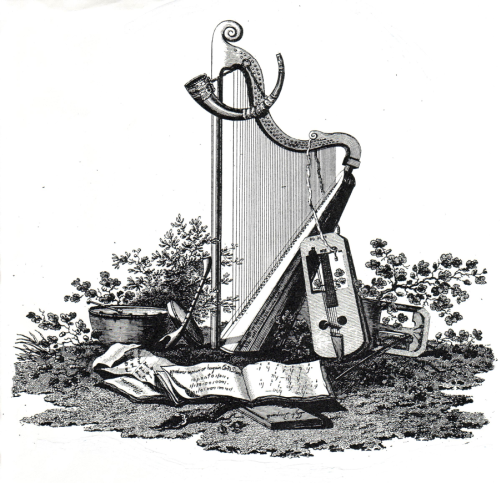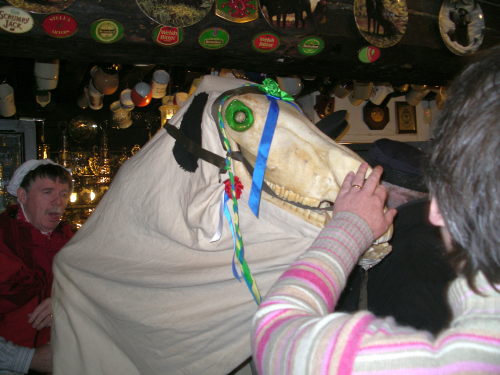|
|
||||||||||||||||||||||||||||||||
| Folkwales Online Magazine December 2012 | Gwerincymru — o Gymru o’r byd | |||||||||||||||||||||||||||||||
|
BARRULE, JS MABON GEAR STOLENJOHN EELES (FOR JAMIE SMITH'S MABON) EMAILS: Adam Rhodes and Tomâs Callister had their equipment stolen from a car in York on Saturday night. Bouzouki, guitar, pedals and flight case - please share the link to see pictures and a list and see if we might be able to get some of them back. And fellow musos - please keep your eyes peeled! http://www.barruletrio.com/stolen/ Blwyddyn Newydd Dda – Happy New Year!
Until his death in 1997, Cynwyd Evans - well into his eighties and one of the original Mari party - would hold the fort single-handed inside the Old House as the Mari tried to enter, his ability to remember and create new responses delighting everybody. When you visit the Old House, look at the pub sign outside; it is Cynwyd's image, holding Y Fari’s reins.
The industrial revolution and the rise of fire-and-brimstone chapel preaching had a serious effect on Y Fari. Deacons rallied about such a pagan and barbaric practice, and the participants were urged to do something useful instead. Y Fari had croaked its last – enter Nefydd, the Rev. William Roberts (1813-1872), a Denbighshire man who became a Blaenau Gwent Baptist minister. He hated Y Fari. He wrote a book entitled The Religion Of The Dark Ages, gave a detailed account of the Mari and transcribed 20 verses, so his congregation could recognise it. He campaigned with great fervour: “We must try and get the young people of our time more to interest themselves more in intellectual and substantial things such as reading and composing poetry, essays, singing etc, as is encouraged and practised in our Eisteddfodau… I wish of this folly, and of all similar follies, that they find no place anywhere apart from the museum of the historian and the antiquary.”
It had the opposite effect. From his grave, Nefydd must be regretting the folly of the 20 verses, published for all to see. The Welsh population hungrily seized on the fragments of the Mari’s tradition, and - thanks to Nefydd - we can now study the Mari verses in all their true splendour.
|
||||||||||||||||||||||||||||||||
| AQ |
Contact: Mick Tems, Editor - Folkwales Magazine, 88 Manor Chase, Y Beddau, Pontypridd, CYMRU / WALES CF38 2JE Phone: 01443 206689 E-mail: micktems@folkwales.org.uk Website: www.folkwales.org.uk |
|||||||||||||||||||||||||||||||


 Our
picture shows the Cwmni Caerdydd Mari Lwyd, relaxing at the bar in Yr Hen
Dŷ, The Old House, Llangynwyd, after a
refreshing session of pwnco, the traditional question-and-answer rite, a
loveable and mysterious South Wales custom that has lasted years and
years. In its purest form, the horse’s skull and party arrive at the door
and sing introductory verses. Then comes a battle of wits (pwnco) in which
the regulars and the Mari party outside exchange challenges and insults in
rhyme. At the end of the battle, which can be as long as the creativity of
the two parties holds out, the Y Fari enters with another song, Y Wassael.
Our
picture shows the Cwmni Caerdydd Mari Lwyd, relaxing at the bar in Yr Hen
Dŷ, The Old House, Llangynwyd, after a
refreshing session of pwnco, the traditional question-and-answer rite, a
loveable and mysterious South Wales custom that has lasted years and
years. In its purest form, the horse’s skull and party arrive at the door
and sing introductory verses. Then comes a battle of wits (pwnco) in which
the regulars and the Mari party outside exchange challenges and insults in
rhyme. At the end of the battle, which can be as long as the creativity of
the two parties holds out, the Y Fari enters with another song, Y Wassael.